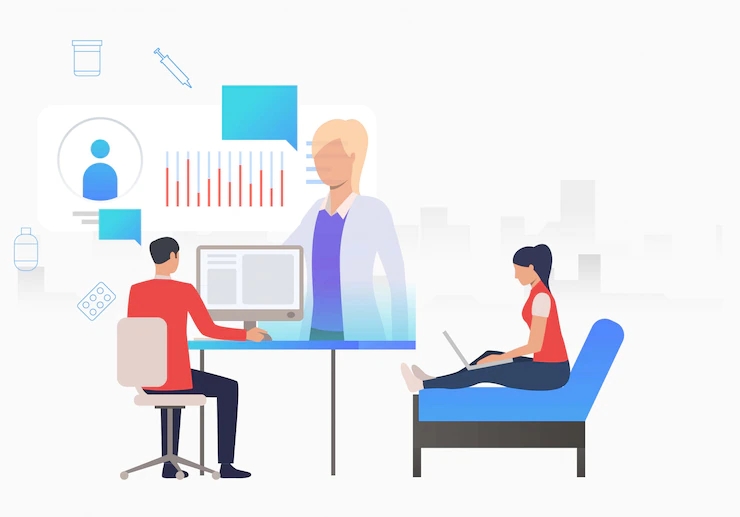
Cost Decrease! To this end, healthcare establishments are consistently putting resources into refreshing their ERP systems to make patient consideration more accessible and better. Besides, decreasing clinical mistakes and expanding productivity for healthcare suppliers are essential explanations behind implementing ERP software for the healthcare business. In this article, we will see important benefits of implementing an ERP software in the Healthcare Industry.
The tireless flood of licences and new innovations made it feasible for hospitals and other healthcare associations to incorporate the patient database with essential specialist and representative data. Specialists and clinicians require data on their patients’ symptomatic reports to work with correspondence and make their treatments more viable.
It is essential to smooth out data through drug stores, lab frameworks, radiology, image archiving, patient communications systems (PACS), and electronic clinical records (ECRs) for patients. Patients, on the other hand, have been granted access to the gathered subtleties from their clinical records in order to expeditiously orchestrate arrangements and decide.
Benefits of ERP Software for Hospitals
Better patient consideration
An ERP stage assists healthcare suppliers with remote access to secret weapons and reports for patients. It also assists patients in making informed and appropriate treatment decisions. High-level, mechanised software makes it more straightforward to plan future tests and operations. An ERP arrangement guarantees vital patient data is available across different systems.
Decreased working expenses
ERP software for healthcare will bring about process efficiencies as a feature of the IT automation program. ERP conveys various undertakings, like payroll, accounting, and human resources, and places them into a common database. This automates various back-end processes such as executive payroll, board accounting, and stock management.
Smooth out healthcare processes and initiate best practices.
This is achieved by consolidating key facilities like patient ID, electronic clinical records, the executives, the radiology office, OPD, and crisis administrations.
Healthcare organizations should proficiently monitor all strategies and methodologies associated with part benefits, installments, enrollment, and supplier organizations, staying up to date with the prescribed procedures.
Patient Security
By facilitating correspondence between doctors and patients, an ERP programme helps healthcare suppliers work on patient security. Various associations interpret an incorporated ERP as a hierarchical basis to achieve a culture of patient well-being.
Electronic Wellbeing Data Capacity
Hospitals and healthcare suppliers store fundamental information about their business processes and their patients. Implementing Rexo ERP software for healthcare is smart to guarantee insurance and the confidentiality of all data. Clients can advantageously refresh every piece of information put into the programme with an ERP framework.
Business insight and vital preparation
When you run a hospital, implementing an ERP programme can give you better business information to help you make better decisions. This software can compute and evaluate the functional productivity of a hospital. It offers data on planning, requisitions, and patient visitation.
ERP assists proprietors and chairmen with concocting a field-tested strategy. It recognises and targets regions for development, subsequently helping execution generally and targets regions for development, subsequently helping execution generally. Assuming the regions requiring improvement are characterized, it will be a lot simpler for the top administration to follow and decide if the strategies set up are valuable.











